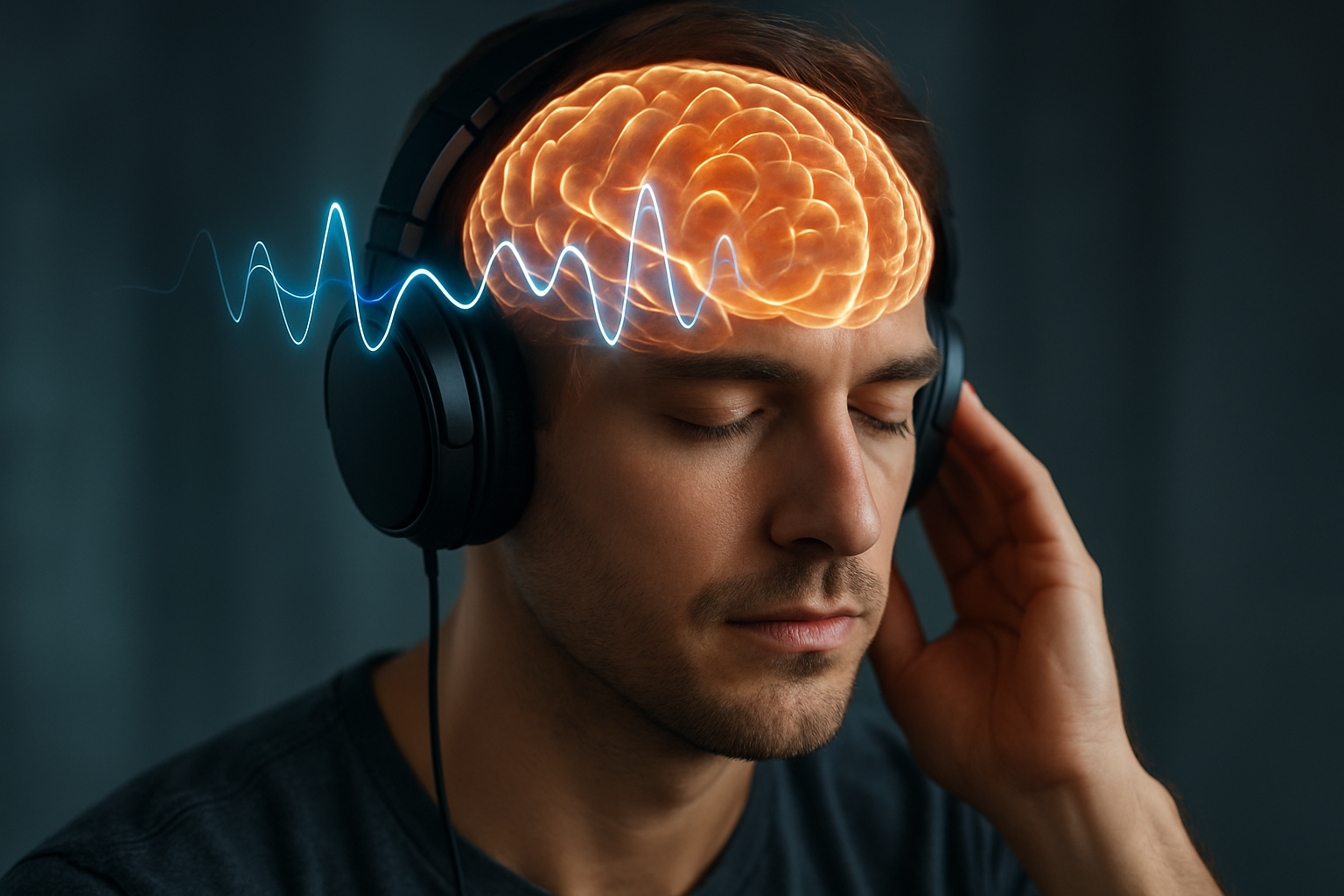Binaural Beats: Tuning Your Brain for Optimal Well-being
Can sound waves actually change your brain? Imagine slipping on headphones and experiencing reduced anxiety, improved focus, or even enhanced creativity within minutes. This isn't science fiction – it's the intriguing world of binaural beats, a cutting-edge approach to cognitive enhancement that's capturing the attention of wellness enthusiasts and neuroscientists alike.

The key lies in brainwave entrainment – the ability of the brain to synchronize its electrical activity with external stimuli. When exposed to binaural beats, the brain attempts to match the perceived frequency, potentially altering its state. Different frequencies correspond to various mental states, from deep relaxation to heightened alertness.
Cognitive Benefits and Current Research
Recent studies have shown promising results regarding the cognitive benefits of binaural beats. A 2019 meta-analysis published in the journal Psychological Research found that binaural beat exposure was associated with reduced anxiety, increased attention, and improved memory performance.
Researchers at the Oregon Health and Science University conducted a study on binaural beats and creative problem-solving. They found that participants exposed to alpha frequency binaural beats (associated with relaxation) showed improved divergent thinking, a key component of creativity.
Moreover, a 2020 study in the Journal of Cognitive Enhancement suggested that binaural beats in the gamma frequency range could enhance selective attention and working memory in healthy adults.
Applications in Stress Reduction and Mental Health
One of the most exciting applications of binaural beats is in stress reduction and mental health management. Dr. Suzanne Evans Morris, a neuroscientist at the University of California, San Diego, has been studying the effects of binaural beats on cortisol levels, a key stress hormone.
Her preliminary findings indicate that regular exposure to theta frequency binaural beats (associated with deep relaxation) may lead to a significant reduction in cortisol production. This could have far-reaching implications for managing stress-related disorders and improving overall mental well-being.
Some mental health professionals are already incorporating binaural beats into their treatment protocols. Dr. James Lake, a psychiatrist specializing in integrative mental health, uses binaural beats as an adjunct therapy for patients with anxiety and insomnia. He reports that many of his patients experience improved sleep quality and reduced anxiety symptoms after regular use.
Binaural Beats and Physical Performance
The potential benefits of binaural beats extend beyond mental well-being into the realm of physical performance. A study published in the Journal of Strength and Conditioning Research explored the effects of beta frequency binaural beats on athletic performance.
The researchers found that athletes who listened to beta frequency binaural beats before and during high-intensity exercise showed improved reaction times and increased power output compared to a control group. This suggests that binaural beats could be a valuable tool for athletes looking to enhance their performance without the use of performance-enhancing substances.
Integrating Binaural Beats into Daily Life
As research continues to unveil the potential benefits of binaural beats, many are wondering how to incorporate this technology into their daily routines. Dr. Helen Lavretsky, a professor of psychiatry at UCLA, suggests starting with short, 15-minute sessions and gradually increasing duration as comfort levels improve.
It’s important to note that different frequencies may be more beneficial for specific purposes. For example, alpha frequencies (8-13 Hz) are often recommended for relaxation and creativity, while beta frequencies (13-30 Hz) may be more suitable for focus and concentration.
Many smartphone apps and online platforms now offer customizable binaural beat experiences. However, experts caution against relying solely on these technologies for mental health management. They should be viewed as a complementary tool in a holistic approach to well-being that includes proper nutrition, regular exercise, and adequate sleep.
Binaural Beat Frequencies and Their Potential Effects
-
Delta (0.5-4 Hz): Deep sleep, healing, pain relief
-
Theta (4-8 Hz): Meditation, creativity, emotional connection
-
Alpha (8-13 Hz): Relaxation, stress reduction, learning
-
Beta (13-30 Hz): Focus, problem-solving, active thinking
-
Gamma (30-100 Hz): Cognitive enhancement, memory recall
As we continue to explore the frontiers of neuroscience and holistic health, binaural beats offer an exciting glimpse into the power of sound to influence our mental and physical states. While more research is needed to fully understand their long-term effects and optimal applications, the current evidence suggests that this innovative approach to cognitive enhancement may play a significant role in the future of wellness and personal development.






